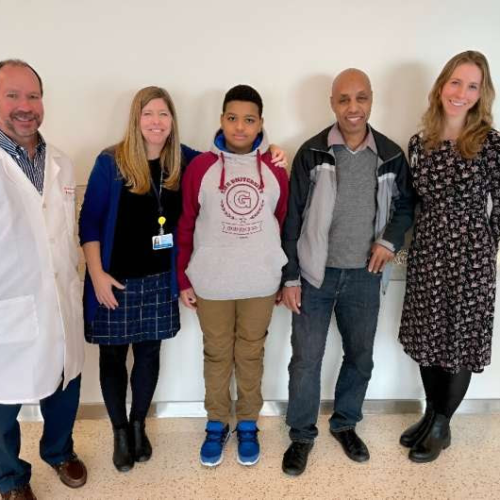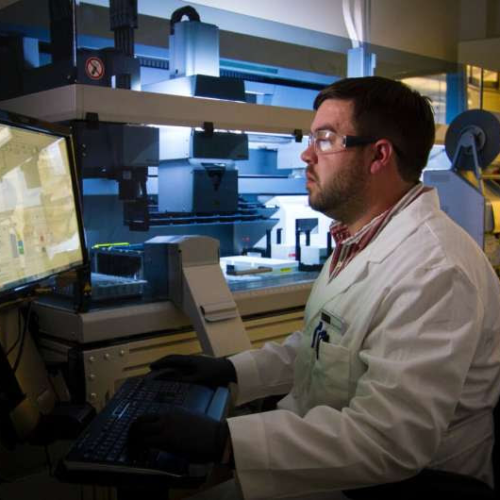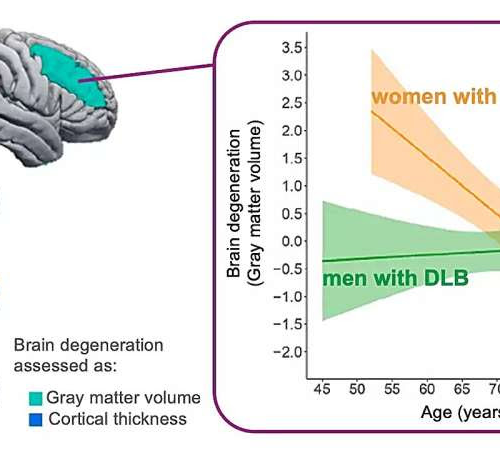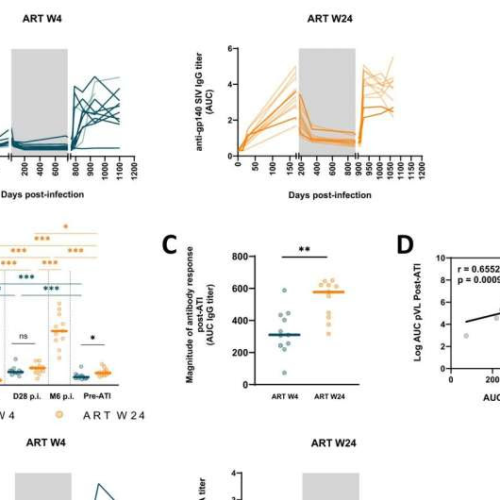by University of Missouri Credit: Unsplash/CC0 Public DomainA new study at the University of Missouri’s Thompson Center for Autism and Neurodevelopment has found that propranolol, a medication that treats high blood pressure, can also help lower anxiety for kids and young adults with autism spectrum disorder (ASD). The work is published in the journal Psychopharmacology. Given...
Study questions benefit of new Alzheimer’s drug
by Lauren Baggett, University of Georgia Credit: CC0 Public DomainLast summer, the U.S. Food and Drug Administration fully approved the first drug shown to slow the progress of Alzheimer’s. But new research from the University of Georgia suggests that patients and caregivers may not experience any benefit from the drug in their daily lives. The drug,...
Deaf boy can now hear after breakthrough gene treatment
Aissam Dam, third from left, was born ‘profoundly deaf’ because of a highly rare abnormality in a single gene.His father’s voice, the sounds of passing cars and scissors clipping his hair: An 11-year-old boy is hearing for the first time in his life after receiving a breakthrough gene therapy. The Children’s Hospital of Philadelphia (CHOP)...
Long-term follow up pinpoints side effects of treatments for prostate cancer patients
by Vanderbilt University Medical Center Credit: Unsplash/CC0 Public DomainA 10-year follow-up study of nearly 2,500 U.S. men who received prostate cancer treatment will help inform decision-making in terms of treatments and side effects for a diverse population. The CEASAR (Comparative Effectiveness Analysis of Surgery and Radiation for Localized Prostate Cancer) study, coordinated by Vanderbilt University Medical...
Breaking down fat byproducts could lead to healthier aging: Researchers identify key enzyme that does just that
by Eyleen Jorgelina O’Rourke, The Conversation Triacylglycerols, also known as triglycerides, are composed of a glycerol linked to three fatty acids. Credit: Lumen Learning (formerly Boundless) via LibreTexts, CC BY-SAThe journey of aging brings with it an unavoidable reality for many: an increased accumulation of body fat. Though much of society seems mostly focused on the...
Popular diabetes drug may also reduce the risk of severe liver disease
by Karolinska Institutet Credit: Pixabay/CC0 Public DomainOzempic and other GLP1 agonists are associated with a reduced risk of developing cirrhosis and liver cancer in people with type 2 diabetes and chronic liver disease, according to a nationwide study from Karolinska Institutet in Sweden published in the journal Gut. GLP1 agonists like Ozempic reduce blood sugar levels...
A type of dementia that hits the brains of men and women differently
by Annika Clemes, Karolinska Institutet The brain pictures on the left show brain areas with more brain loss in men compared with women with DLB. The lines plot on the right show that men with DLB have more brain loss from earlier ages than women with DLB, while women with DLB undergo more aggressive brain loss...
Invasive fungal infections: A growing risk to human health worldwide
by Ben Knight, University of New South Wales Candida albicans. Credit: Wikipedia.Thinking of fungi probably conjures up an image of some wild mushrooms or a sourdough starter in your mind. That, or maybe a time where you had an unfortunate itchy skin rash that went away with a bit of topical medication. But researchers in mycology—the...
HIV: Early treatment is one key to remission
by Pasteur Institute The anti-SIV antibody levels after treatment interruption are associated with the magnitude of antigen stimulation. Kinetics of plasma anti-gp140 SIV IgG (A) and IgA (E) in W4-treated and W24-treated CyMs. Comparison of anti-gp140 SIV IgG (B) and IgA (F) levels between W4- and W24-treated CyMs at baseline, on day 28 p.i.; at 6...
Can autoimmune diseases be cured? Scientists see hope at last
After decades of frustration and failed attempts, scientists might finally be on the cusp of developing therapies to restore immune ‘tolerance’ in conditions such as diabetes, lupus and multiple sclerosis. Cassandra Willyard Antigen presenting cells (illustrated, right) can sometimes train T cells (left) not to attack. Credit: Juan Gaertner/Science Photo Library Back in 2001, immunologist...








